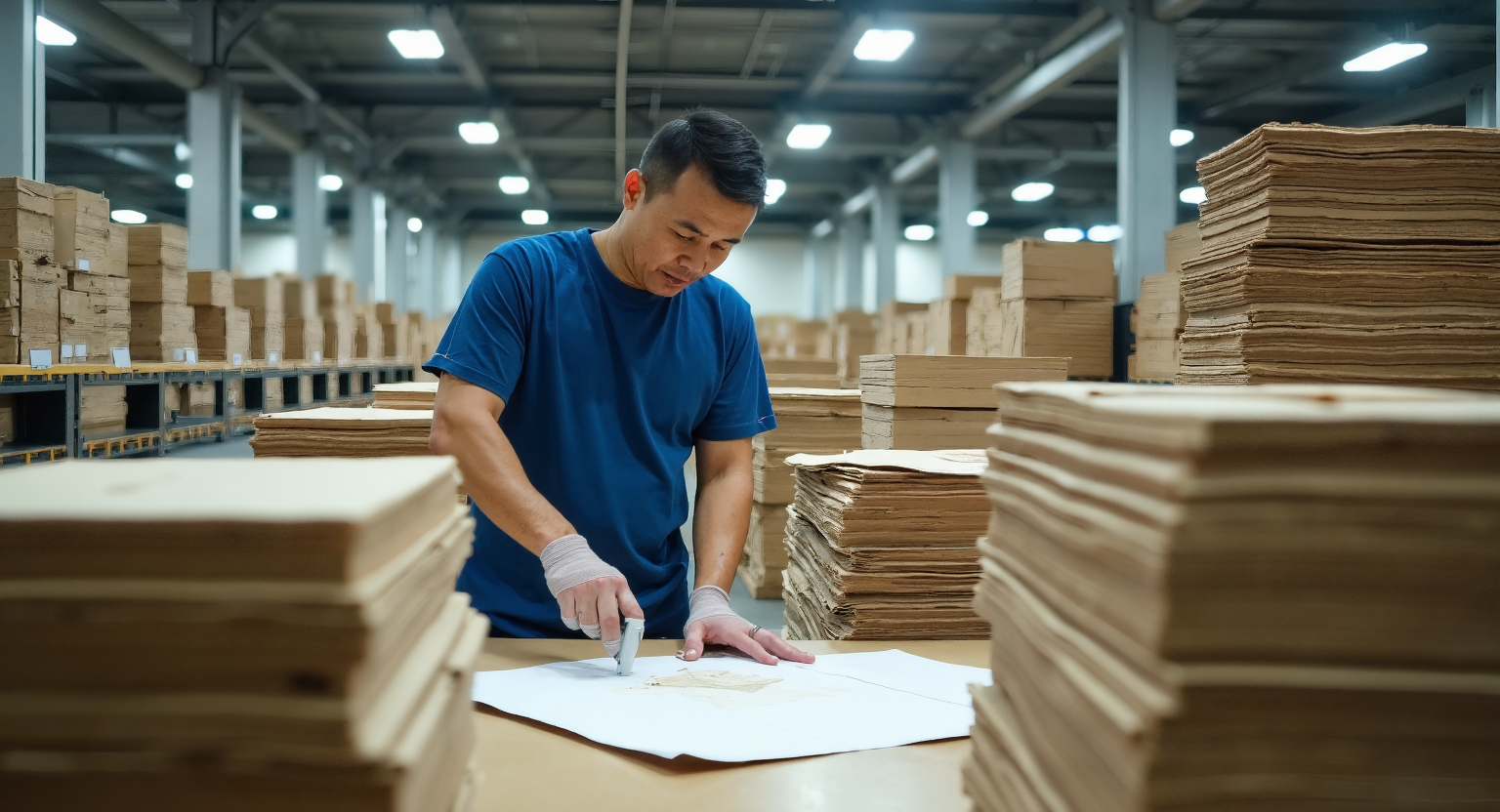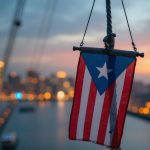The Global Paper Chase: How the Paper and Packaging Industry Shapes OFW Employment Across Borders
Introduction
In an increasingly interconnected world, the paper and packaging industry plays a pivotal role in global commerce, affecting employment patterns across various countries. For Overseas Filipino Workers (OFWs), this industry presents a unique landscape of opportunities and challenges. This article delves into a comparative analysis of how the paper and packaging sector influences OFW employment rates in different nations, shedding light on the intricate relationship between this essential industry and the Filipino diaspora’s workforce dynamics.
The Paper and Packaging Industry: A Global Overview
The paper and packaging industry is a behemoth in the global economy, touching nearly every sector from manufacturing to retail. Its reach extends far beyond the simple production of paper, encompassing a vast array of products including cardboard boxes, specialty papers, and innovative packaging solutions. As of 2021, the global paper and packaging market was valued at over $350 billion, with projections for continued growth in the coming years.
This industry’s significance lies not just in its economic value but in its pervasive presence across supply chains worldwide. From the cardboard boxes that deliver our online purchases to the paper cups holding our morning coffee, the products of this industry are ubiquitous in our daily lives. For OFWs, this ubiquity translates into a diverse range of employment opportunities across different countries and sectors.
OFW Employment in Major Paper and Packaging Hubs
United States: The Land of Innovation and Scale
The United States, as one of the world’s largest economies, has a substantial paper and packaging industry. For OFWs, this market presents a mix of high-skill and labor-intensive opportunities. The U.S. industry is characterized by its focus on innovation, particularly in sustainable packaging solutions and advanced paper products.
Employment rates for OFWs in this sector in the U.S. are influenced by several factors:
1. Visa Regulations: The H-1B visa program, often utilized by skilled workers, has become increasingly competitive, affecting the influx of OFWs into specialized roles within the industry.
2. Automation: The U.S. paper and packaging industry is at the forefront of automation, which has led to a shift in the types of jobs available. While this has reduced some manual labor positions, it has created new opportunities in machine operation and maintenance.
3. Sustainability Initiatives: With a growing emphasis on eco-friendly packaging, there’s an increased demand for workers with expertise in sustainable materials and processes.
“In the U.S., we’re seeing a transformation in the paper and packaging industry. OFWs with skills in green technologies and advanced manufacturing processes are particularly well-positioned,” notes Maria Santos, a Filipino-American HR consultant specializing in manufacturing sectors.
China: The Manufacturing Powerhouse
China’s paper and packaging industry is unparalleled in scale, accounting for a significant portion of global production. The country’s massive manufacturing sector creates a constant demand for packaging materials, influencing OFW employment in several ways:
1. Labor-Intensive Operations: Despite increasing automation, many Chinese paper and packaging facilities still rely heavily on manual labor, creating opportunities for OFWs in production roles.
2. Quality Control: As Chinese manufacturers aim to improve product quality to meet international standards, there’s a growing demand for skilled quality control professionals.
3. Language Barriers: OFWs with proficiency in both English and Mandarin often find themselves in advantageous positions, serving as liaisons between Chinese operations and international clients.
However, it’s important to note that China’s stringent labor laws and preference for domestic workers can pose challenges for OFW employment in this sector.
Germany: The Efficiency and Sustainability Leader
Germany’s paper and packaging industry is renowned for its efficiency and commitment to sustainability. For OFWs, this market presents unique opportunities and challenges:
1. High Skill Requirements: The German industry emphasizes highly skilled labor, particularly in engineering and technical roles. OFWs with advanced degrees and specialized skills are more likely to find opportunities here.
2. Language Proficiency: While many German companies operate in English, proficiency in German significantly enhances employment prospects for OFWs.
3. Sustainability Focus: Germany’s strong emphasis on environmental sustainability creates opportunities for OFWs with expertise in eco-friendly packaging solutions and circular economy principles.
A recent study by the German-Philippine Chamber of Commerce and Industry found that “Filipino workers with technical expertise in sustainable packaging technologies are increasingly sought after by German firms.”
Factors Influencing OFW Employment Rates in the Paper and Packaging Industry
Several key factors affect OFW employment rates across different countries in this sector:
Economic Conditions and Industry Growth
The overall economic health of a country and the growth rate of its paper and packaging industry directly impact OFW employment opportunities. Countries experiencing economic booms or rapid industry expansion are more likely to seek international talent, including OFWs.
Technological Advancements
The pace of technological adoption in a country’s paper and packaging industry significantly influences the types of jobs available to OFWs. Nations at the forefront of automation and digital transformation may offer fewer traditional manufacturing roles but more opportunities in tech-related positions.
Environmental Regulations
Stringent environmental policies in countries like Germany and Canada have led to a greater emphasis on sustainable packaging solutions. This shift creates niche opportunities for OFWs with expertise in environmental science, green chemistry, and sustainable design.
Trade Policies and International Relations
Trade agreements and diplomatic relations between the Philippines and host countries can facilitate or hinder OFW employment in the paper and packaging sector. For instance, the ASEAN-China Free Trade Area has eased the movement of workers within the region, potentially benefiting OFWs in the Chinese market.
Cultural Factors and Integration
The ease with which OFWs can integrate into the local work culture varies significantly across countries. Nations with more diverse workforces or those with historical ties to the Philippines, such as the United States, may offer smoother integration experiences for OFWs.
Challenges and Opportunities for OFWs in the Global Paper and Packaging Industry
Challenges
1. Skill Mismatch
: The rapidly evolving nature of the industry, particularly in developed countries, can lead to a mismatch between OFW skills and industry demands.
2. Visa and Work Permit Complexities
: Navigating the often complex and changing immigration policies of host countries remains a significant challenge for many OFWs.
3. Competition from Local Workforce
: In many countries, there’s increasing pressure to prioritize local employment, potentially limiting opportunities for OFWs.
4. Language and Cultural Barriers
: These can pose significant challenges, particularly in countries where English is not widely spoken in professional settings.
Opportunities
1. Specialization in Sustainable Packaging
: As the industry shifts towards more sustainable practices, OFWs with expertise in this area are well-positioned for global opportunities.
2. Digital Skills
: The increasing digitization of the industry creates opportunities for OFWs with skills in areas such as data analytics, digital printing, and e-commerce packaging design.
3. Cross-Cultural Competence
: OFWs’ ability to adapt to different cultural environments can be a significant asset in multinational companies within the industry.
4. Niche Expertise
: Specializing in areas like food-grade packaging or medical packaging can open doors to specific, high-demand roles across various countries.
Conclusion: Navigating the Global Paper Trail
The paper and packaging industry’s impact on OFW employment rates varies significantly across countries, influenced by a complex interplay of economic, technological, and cultural factors. While challenges persist, the industry’s global nature and ongoing evolution present diverse opportunities for Filipino workers willing to adapt and specialize.
For OFWs looking to enter or advance in this sector, the key lies in continuous skill development, particularly in areas of sustainability and technology. Staying informed about industry trends and country-specific requirements is crucial. Additionally, leveraging the Filipino workforce’s renowned adaptability and strong work ethic can provide a competitive edge in the global market.
As the industry continues to evolve, so too will the landscape of opportunities for OFWs. By understanding the nuances of different markets and aligning skills with global demands, Filipino workers can continue to play a vital role in shaping the future of the paper and packaging industry worldwide.


